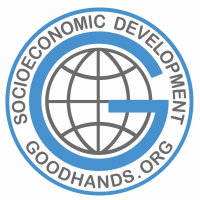Career Planning and Development: Building a Roadmap to Success
A well-thought-out career plan is the foundation of professional success. This section provides practical strategies, tools, and resources to help you identify your career goals, evaluate opportunities, and build a clear path toward achieving them. Whether you’re entering the workforce, transitioning careers, or aiming for growth in your current role, our guides offer actionable steps to empower your journey.
Topic 1.1: Defining Your Career Goals
Setting clear and realistic career goals is the first step to professional success.
● Self-assessment helps you reflect on your skills, interests, and values to understand what motivates you.
● Short-term and long-term goals can be broken down into actionable objectives.
● The SMART Goals Framework ensures goals are specific, measurable, achievable, relevant, and time-bound.
● Researching career paths can help align your ambitions with industries, roles, and opportunities.
● Documenting your goals creates a written roadmap to keep yourself accountable and track progress. Using digital tools like career management apps can help you stay organized.
Explore More: Visit the Mentor Guide
https://www.goodhands.org/en/career/1/1
Topic 1.2: Building a Personalized Career Plan
A career plan helps you map out the steps needed to achieve your professional aspirations.
● Action plans list key milestones, required skills, and timelines for each objective.
● Identifying skill gaps helps you assess where additional training or experience is needed.
● Leveraging resources such as career guides and mentorship programs supports professional development.
● Staying flexible ensures you can adapt your plan as opportunities or challenges arise.
● Reviewing progress regularly helps you adjust your plan to stay on track.
Explore More: Visit the Mentor Guide
https://www.goodhands.org/en/career/1/2
Topic 1.3: Exploring Career Opportunities
Finding the right opportunities requires research, networking, and proactive effort.
● Job market research through job boards, industry publications, and networking events keeps you informed about trends.
● Informational interviews with professionals provide insights into roles and industries.
● Social platforms like LinkedIn help you build a professional presence and connect with contacts.
● Career fairs allow you to meet recruiters and learn about potential employers.
● Volunteering or internships give you experience and establish connections in your desired field. Consider remote internships or virtual volunteering opportunities, which are increasingly available and flexible.
Explore More: Visit the Mentor Guide
https://www.goodhands.org/en/career/1/3
Topic 1.4: Overcoming Career Challenges
Challenges are inevitable, but with the right strategies, they can become opportunities for growth.
● Handling rejections as learning opportunities helps you improve your approach.
● Managing career transitions with transferable skills and a growth mindset ensures smoother changes.
● Balancing career and personal life with time management skills fosters a healthy work-life balance.
● Staying motivated involves celebrating small wins and focusing on long-term goals.
● Dealing with burnout requires recognizing the signs and prioritizing self-care. Consider mindfulness exercises, professional counseling, or reducing non-essential commitments to manage stress.
Explore More: Visit the Mentor Guide
https://www.goodhands.org/en/career/1/4
Topic 1.5: Leveraging Mentors and Support Networks
Mentorship and professional networks are invaluable resources for career advancement.
● Finding a mentor who can guide and advise you is a key strategy.
● Participating in professional groups expands your network and opportunities.
● Supporting others in your network builds lasting relationships.
● Utilizing feedback from mentors and peers refines your skills.
● Staying connected keeps you informed about industry trends and opportunities.
Explore More: Visit the Mentor Guide
https://www.goodhands.org/en/career/1/5

